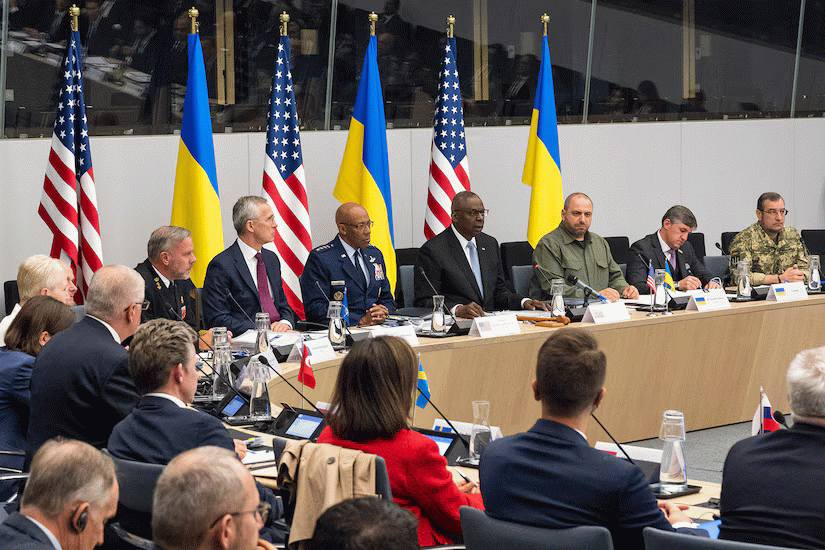
Ukraine’s allies prepare to bolster defense capabilities amid concerns over future U.S. support
US Secretary of Defense Lloyd J. Austin III is set to convene a meeting with the leaders of the Ukraine Defense Contact Group’s (UDCG) eight “capability coalitions” during the upcoming 25th “Ramstein” meeting at Ramstein Air Base in Germany.
The goal is to outline plans for supporting Ukraine’s defense capabilities through 2027, a pivotal step in ensuring the country’s long-term security in the face of ongoing Russian aggression.
The meeting comes at a critical juncture, as the international community seeks to bolster Ukraine’s defenses and deterrence capabilities amid concerns about potential changes in US support following the upcoming transition to the Trump administration. By bringing together the leaders of the capability coalitions, each responsible for a specific aspect of Ukraine’s military capabilities and co-led by at least two NATO nations, Austin aims to secure commitments and roadmaps for sustained assistance.
According to Pentagon officials, these roadmaps will “articulate Ukraine’s air force, armor, artillery, de-mining, drone, integrated air and missile defense, information technology, and maritime security needs and objectives through 2027.” The comprehensive approach is designed to enable donors to plan for and provide consistent, long-term support to Ukraine, ensuring the country can effectively defend itself against future threats.
While some have expressed concerns about the future of the UDCG under the incoming Trump administration, Pentagon officials have emphasized the resilience of the group’s multilateral structure. “I’m very confident of European commitment … ability … experience and extraordinary belief in the mission, and [I’m] confident that those capability coalitions will continue one way or another,” one official stated, highlighting the unwavering support of US allies and partners.
Since its inception in April 2022, the UDCG has played a vital role in coordinating military assistance to Ukraine, with member nations committing over $126 billion in security aid. The upcoming meeting, which will be Austin’s last as Secretary of Defense, is expected to reaffirm the international community’s resolve to stand with Ukraine in its fight against Russian aggression.
However, Polish Defense Minister Władysław Kosiniak-Kamysz has suggested that this may be the last meeting of its kind, as the new US administration is likely to propose a different form of engagement. Speaking at a press conference, Kosiniak-Kamysz expressed gratitude for Austin’s “uncompromising support for Poland, for the presence of American troops in Poland, for supporting Ukraine, and for joint initiatives.” He also called for NATO to take on a greater burden in supporting Ukraine, as it has done with the protection of the Jasionka airport.
Despite the potential challenges posed by the US leadership transition, Ukrainian Defense Minister Rustem Umerov remains hopeful that the UDCG format will be preserved under the Trump presidency. In a recent conversation with Austin, Umerov emphasized the importance of the “Ramstein” format and expressed his desire for its continuation. He also noted that talks between Ukrainian President Volodymyr Zelenskyy and US President-elect Donald Trump “went well,” suggesting a positive foundation for future cooperation.











